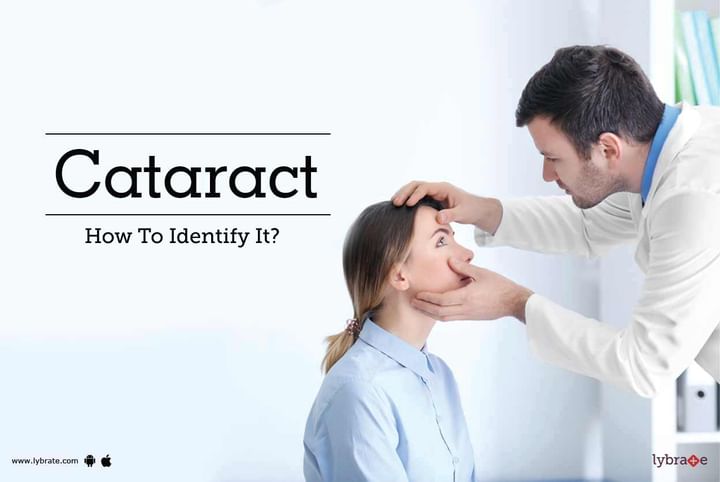Cataract - How To Identify It?
A cataract is a clouding of the normally clear lens of your eye. For people who have cataracts, seeing through cloudy lenses is a bit like looking through a frosty or fogged-up window.
Clouded vision caused by cataracts can make it more difficult to read, drive a car (especially at night) or see the expression on a friend's face.
Most cataracts develop slowly and don't disturb your eyesight early on. But with time, cataracts will eventually interfere with your vision.
At first, stronger lighting and eyeglasses can help you deal with cataracts. But if impaired vision interferes with your usual activities, you might need cataract surgery. Fortunately, cataract surgery is generally a safe, effective procedure.
Causes of Cataracts-
Cataracts happen when protein builds up in the lens of your eye, making it cloudy. This prevents light from passing clearly through the lens, causing some loss of vision. New lens cells form on the outside of the lens, and the older cells are compacted into the center of the lens, forming the cataract.
Types of cataracts include:
Age-related cataracts: These cataracts form because of aging.
Congenital Cataracts: Babies are sometimes born with cataracts as a result of an infection, injury, or poor development before they were born, or they may develop during childhood.
Secondary Cataracts: These develop as a result of other medical conditions, like diabetes, or exposure to toxic substances, certain drugs (such as corticosteroids or diuretics), ultraviolet light, or radiation.
Traumatic cataracts: These form after an injury to the eye.
Other things that can raise your risk of getting cataracts include cigarette smoke, air pollution, and heavy drinking.
Symptoms of Cataracts-
-Clouded, blurred or dim vision
-Increasing difficulty with vision at night
-Sensitivity to light and glare
-Seeing "halos" around lights
-Frequent changes in eyeglass or contact lens prescription
-Fading or yellowing of colours
-Double vision in a single eye
Treatment-
- Surgery: Surgical removal of a cataract is the first and foremost way of dealing with it. The clouded lens is usually removed and then replaced with a new, artificial lens that will give you improved vision.
- Visual Aids: These aids include lens and eyeglasses that will help you see better after the surgery. Cataract glasses usually come in thick and heavy structure. Also, intraocular lens and contact lens can be used by adults who have undergone the surgery. The constant need to remove, clean and reapply makes it inappropriate for young children. Low vision aids can be used before surgery as well, to ensure that the best use of the remaining vision is made with the help of video enlargement software and other adaptive means.
- Medication: The use of eye drops and other medication can also help in improving vision without the actual surgery for cataract removal. This is a short term solution that can be prescribed by the ophthalmologist whom you visit. The doctor will usually study the extent of the damage and prescribe this kind of medication for cases that are mild. But finally, surgery will have to be carried out as the progression of the cataract is guaranteed in all cases.
- Soft Lighting: At home and at work, you can make use of soft lighting so that there is less pressure on the eye lens. Also, soft lighting will help you see better without the glare blocking your vision in case of the presence of a cataract.
- Avoiding Intricate Work: One must avoid hobbies and work that require unblinking attention or many hours as this can put a strain on the eyes and even lead to severe headaches. This includes painting, embroidery and carving related activities.
Dealing with a cataract is a matter of going in for surgery and making certain lifestyle changes to avoid injuries due to impaired vision.



+1.svg)
